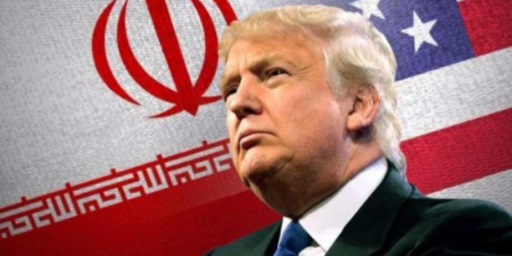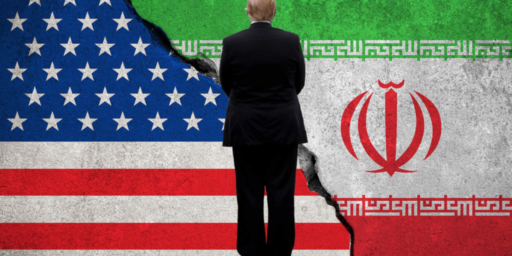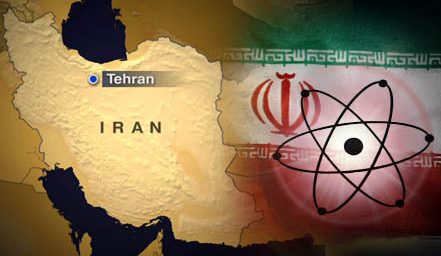Does the U.S. Need a Peer Competitor?
Matt Eckel's takeaway from my Atlantic piece on How Perpetual War Became U.S. Ideology is that we need a peer competitor.
Matt Eckel‘s takeaway from my Atlantic piece on How Perpetual War Became U.S. Ideology is that we need a peer competitor.
Joyner sees a break in U.S. policy at the end of the Cold War that isn’t really present in the historical record.
I agree that the propensity to war is not new; we did quite a few of them during the Cold War. But they were at least tied to the fight against Communism, preservation of access to oil, or other American interests. Humanitarian justifications and the “Responsibility to Protect” are a recipe for endless engagement; it’s a bad world out there.
Readers know that I’m supportive of a reasonably assertive foreign policy, but I really do think that the universe of possibilities open to American leaders is too heavily weighted toward military action at any given time. My preference would be for American domestic institutions and political norms to check such aggressive impulses and provide balance while maintaining American primacy. For better or worse, though, those checks have been degraded beyond repair, and I have little faith in America’s indigenous capacity to fix them absent a catastrophic budget crisis or similar event. Under the circumstances, then, the United States may need a more robust peer competitor, if only to save it from American elites’ own worst instincts.
Not having a superpower peer competitor means that the stakes of war have gone down considerably. That’s good in that global annihilation is much less likely. It’s bad, though, in that intervening militarily has become a Why not? situation.
Even now, we’re very constrained when China or Russia act badly. The upside of military action is just too low. Ditto even modest powers like Iran or North Korea, who managed to avoid American invasion despite being two-thirds of Bush’s Axis of Evil.
Like Matt, I would like to see domestic pressure act as the constraint on constant intervention. I thought the election of George W. Bush in 2000 — who campaigned on “No Nation Building” and a “humble foreign policy– was the end of the interventionist tendencies of the Clinton Administration. As it turned out, not so much. Nor has Barack Obama, who rose to the presidency on the strength of having opposed the Iraq War, been any different. There’s just too much elite pressure in the direction of war.







I disagree with one small part here that you sort of imply. As an Obama voter I never thought Obama was a peacenik. I do think he got a lot of peacenik votes from a lot of people who didn’t get Obama and just saw a reflection of their own desires.
There’s a tendency on both sides to assume Obama has beliefs and positions for which there is little evidence. The Right assumed he was anti-business, for example. The Left assumed he was some kind of wink-wink pacifist even as he talked bluntly about upping the Predator raids into Pakistan and killing Bin Laden.
I always thought he was a moderate, middle-of-the-road guy, very smart, a subtle player with a long view, and ruthlessly goal-oriented. I can’t think of anything he’s done that has surprised me — even when it was something that frustrated me. The recent the president I think he most resembles is George HW Bush — competent, thoughtful, cautious.
Michael,
Obama started the race as a cypher and somehow managed to win it without changing that. Everyone pretty much took away what they wanted from his speeches, which I presume was his goal.
I didn’t think Obama was a peacenik, in that he clearly pledged to double down on Afghanistan. (Although, demonstrating his cypher skills, many Democrats seemed shocked when he did.) He also pledged to draw down in Iraq, although that became a moot point after Bush signed the SOFA.
On Libya, though, I thought he was going to following his Realist instincts and stay out. He didn’t. Granted, the intervention has thus far been fairly minimal. But it’s not over yet and the objectives are high.
The whole thing is kind of dumb, like beating cancer and saying “what I need is another disease.”
Reacting to the title of your post, James, rather than the body of the post, the last thing we need is a peer competitor. What we really need is to realize that we don’t have any peer competitors. We can afford to stand down a bit.
Richard Nixon’s 1968 nomination acceptance speech:
http://www.4president.org/speeches/nixon1968acceptance.htm
Sounds like the makings of a good movie, where America needs an arch enemy after the fall of the Soviet Union. It could be called something like Canadian Bacon
In other words Comrade Obama ran as any empty suit, that everyone was free to fill as they saw fit.
Responding to James’ point I have a hard time thinking of any recent successful candidate that hasn’t been a cypher. It seems like that is a critical part of the modern charismatic candidate. Obama might have been the most extreme case*, but one need look no further than Sarah Palin for another candidate whose popularity — at the time — was due in part to her cyphic(?) nature.
In both cases, despite their records and even their outward statements, everyone chose (and to a large degree continues) to read their own definitions into both candidates. And, large amounts of Obama and Palin’s base (and their most vocal opponents) continue to believe that they (the base/opposition) know the “real” individual.
So not only does that allow some liberals to think of Obama as a radical liberal, that very cypher nature allowed the perpetuation of birtherism (or comments like the one immediately above).
[*] Side note: I think it’s important to note that people on both sides benefit from the cypher. In the short term — especially when one is in initial campaign mode — it helps shore up support. Governing as Obama discovered, is where that comes back to bite you in the ass (and again, I think this was an important, though not the only, factor in Palin’s stepping down as Governor — and why she can never truly risk winning a major election again). But the critics of the candidates — including various PACs and pundits — also benefit by using that cypher nature to portray their opponents as the most dangerous thing to ever happen to America.
Be careful what you wish for.
Isn’t the goal of transnational progressivism to drag the US down so that we will have peers?
? Think harder. George W. Bush was a cipher? He’d been pretty visible as governor of Texas and son of a previous president. Bill Clinton? He’d been governor of Arkansas from 1978 to 1992, founder and chairman of the DLC, and had been the highly visible chairman of the National Governor’s Association.
George H. W. Bush had held highly visible jobs in the federal government (including Director of National Intelligence) for decades before serving as Vice President for eight years. Hardly the stuff of which ciphers are made. Ronald Reagan had been in the public eye for 40 years before he was elected to the presidency.
Maybe you can expand on what you mean because you certainly can’t mean that they were as little known as Barack Obama before being elected president. I voted for the man but I do think he’s distinctive in how little known and scrutinized he was before being elected to the presidency.
More like a chameleon. GW was a New England liberal blue blood, that ran as a conservative Texas good ol’ boy in order to get elected.
@Southern Hoosier: “GW was a New England liberal blue blood, that ran as a conservative Texas good ol’ boy in order to get elected.”
He was born in Connecticut but spent his childhood and most of his adulthood in Texas. He did go back East for prep school and college, but his entire business career was in Texas, including a long stint as owner of the Texas Rangers and Governor of Texas.
Perhaps I’m using cypher incorrectly.
In general, I would argue that voting records and archives — provided they are relatively limited (ie. not as long as McCain’s) have become increasingly irrelevant.
Leaving Regan and Bush I aside — GW was a cypher of sorts to the degree that he was able to be successfully portrayed as both a return to a certain type of social conservatism AND that he had a record of reaching across the aisle to facilitate masterful compromises. Likewise he was at once an insider/outsider.
So on one hand, it was promised (as with Obama) that he would be the “Uniter” while at the same time promising to lead a conservative (in particular compassionate conservative rebirth). And once in office — one might argue under the influence of Cheney and Rove — he takes to become increasingly “hard lined” on those issues he was in theory more progressive about (something that he walks back from in the second term).
In the same way, Obama’s voting records — both at the State level and the National Level — last I checked, demonstrated a record for left-of-center compromise. Ditto many interviews, which despite scary words like “doctrine of negative rights” displayed an exceedingly middle of the road viewpoint on many issues. But that was no where near the degree of left of center that his opponents set up or that his followers believed in. In matters like the issue of the public option, he was pretty transparent about his positions.
Anecdotally, as the ’08 election drew nearer, simultaneously trying to walk by my liberal friend’s belief he was a “radical” liberal” and simultaneously my conservative friends take that he was a “radical” liberal.
Actually SH raises a good question — where is the line drawn between Chameleon and Cypher? Is it purely based on intention of the subject in question?
GWB had to be relatively unknown for “compassionate conservative” to fly.
(it proved half-right)
Doesn’t really matter where he was born, the Bush family is New England blue blood.
Liberal Ivy League education, Skull and Crossbones member.
Immigration? Straight out of Ted Kennedy’s play book.
Tax cuts? Look at JFK.
Education? No Child Left Behind. More government control, more government spending, less results.
Lied about WMD to get us into war in Iraq, just like like LBJ lied about the Gulf of Tonkin to get us into war in Vietnam.
Medicare Prescription Drug? Think of it as Hillary lite.
Grew the government with the Dept of Homeland Security.
Bush’s Tarp funds, government take over of the private sector.
No Charles, the goal of transnational progressivism is to try and put one coherent, rational, factually correct thought in that empty drum you call a head.
The battle never ends.
And obviously, as you so ably demonstrate, some people still fill him as they see fit, despite evidence to the contrary…
Oh my, how quickly memories fade…
More like 20-20 hinsight.
It’s funny but I never had any difficulty getting Obama. And I’ve seen nothing that has surprised me about him.
Not to toot my own horn (although . . .) but it’s possible that the guy who has created and written hundreds of characters across 22,000 pages is better at sussing out character than even political scientists, software wizards and engineers.
Just sayin’ . . .
michael reynolds, please provide any evidence that Obama can write about anyone other than himself, assuming he did that. A book, a piece of legislation, a college paper, anything. Thanks. Oh, and editing doesn’t count.
Ben Wolf, such biting wit.
@charles austin – I think michael reynolds is talking about his own writing ability and character discernment ability, not Obama’s.
(Unless you’re just pulling his leg)
rodney, you are correct and I was careless in reading it. Thank you and Michael, my apologies.
Charles:
In all fairness to you I could have written the sentence more clearly. Which casts some doubt on my writing skills, eh?
Well, on the ignorance scale of 1 to 10, that is probably an 11.
Bush is many things, but he is no fake Texan, he is the real thing. My relatives in Texas practically worship him and they don’t give that away to carpetbaggers.
Yeah, but you’re not getting paid for this.
Dubya wasn’t born in Texas but he got here as fast as he could. Becoming a Texican was for the embetterment of Connecticut I’m sure.